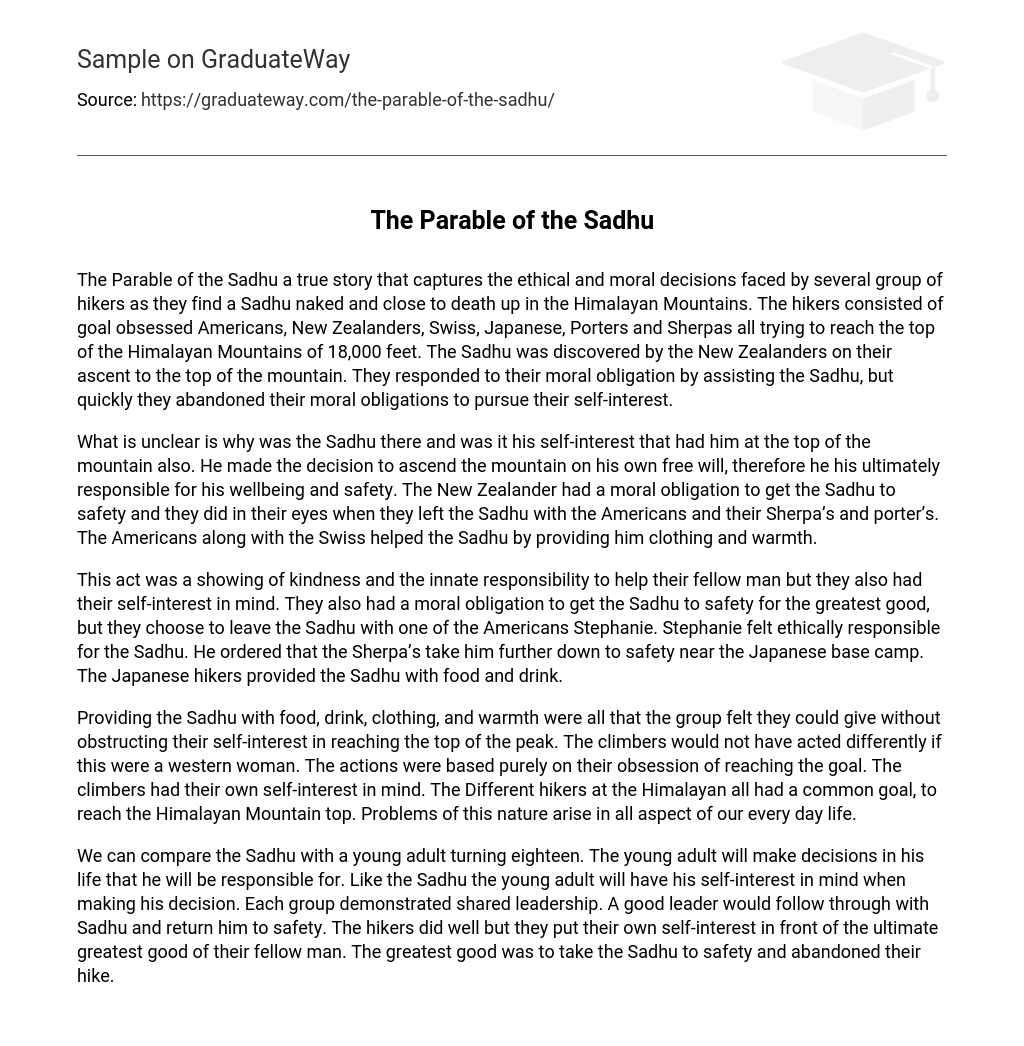The Parable of the Sadhu tells the story of hikers who find a nearly lifeless Sadhu in the Himalayan Mountains. The group is made up of Americans, New Zealanders, Swiss, Japanese, Porters, and Sherpas all striving to reach the summit of an 18,000-foot mountain. While climbing, the New Zealanders come across the Sadhu and initially help him as their moral duty dictates. However, their personal interests become more important than their ethical responsibilities, causing them to ultimately leave the Sadhu behind.
The Sadhu’s purpose for being at the top of the mountain and whether his own self-interest prompted him to climb remains uncertain. Nevertheless, as he made the choice to ascend voluntarily, he bears ultimate responsibility for his own welfare and safety. The New Zealander felt a moral duty to safeguard the Sadhu and considered this obligation fulfilled by entrusting him with the Americans, Sherpas, and porters. Additionally, both the Americans and Swiss provided assistance to the Sadhu by offering clothing and warmth.
The act exhibited by the individuals showcased both their compassion and their consideration for their own well-being. They recognized their moral duty to ensure the safety of the Sadhu for the greater good, yet they opted to entrust Stephanie, one of the Americans, with the responsibility of taking care of the Sadhu. Stephanie, feeling a sense of ethical obligation, instructed the Sherpas to accompany the Sadhu to a safer location close to the Japanese base camp. Consequently, the Japanese hikers provided the Sadhu with sustenance and refreshments.
Feeding, giving drink, dressing, and keeping warm the Sadhu were all the group believed they could offer while still pursuing their own self-interest in reaching the peak. Regardless of the Sadhu’s gender, the climbers would have behaved the same way. Their actions were motivated solely by their fixation on achieving their goal. The climbers prioritized their own self-interest. All the hikers at the Himalayan had one shared objective: reaching the summit of the Himalayan Mountain. Challenges of this kind arise in various aspects of our daily lives.
We can compare the Sadhu to a young adult who is turning eighteen. Both the Sadhu and the young adult will make decisions for which they are responsible, with their own self-interest in mind. Each group showed shared leadership. A good leader would have ensured the safety of the Sadhu and returned him to a place of safety. Although the hikers did well, they prioritized their own self-interest over the greater good of helping their fellow man. The ultimate greatest good was to ensure the safety of the Sadhu and abandon their hike.





